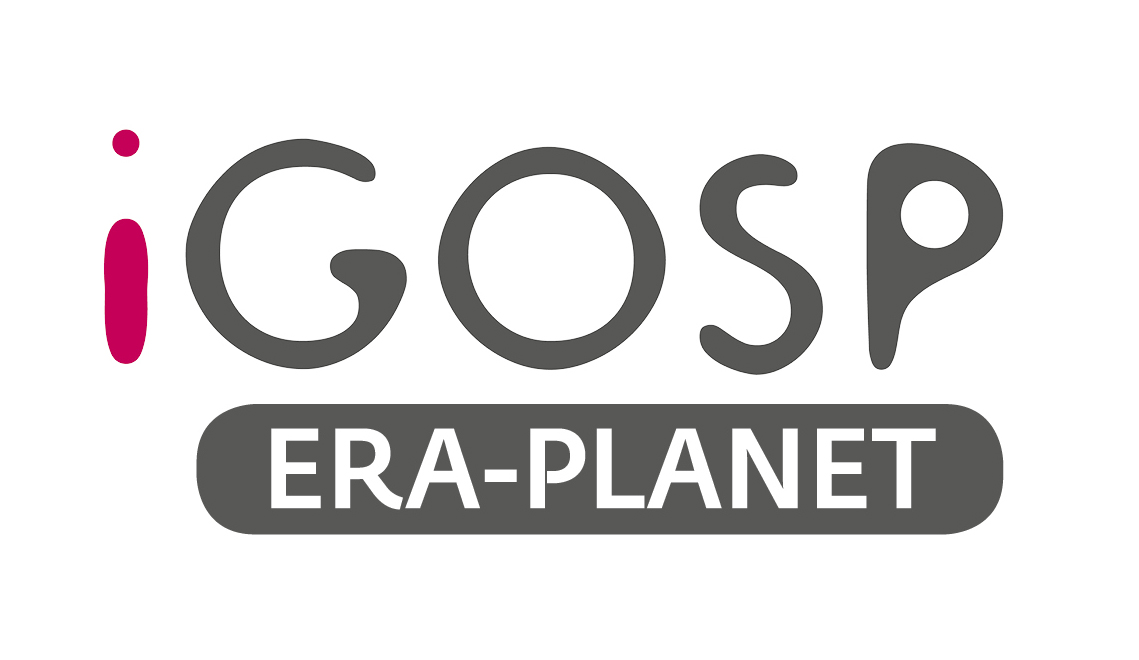
Abstract of the project
IGOSP is one of the four projects financed by the output of the Joint International Call organized within the ERA-PLANET program with the participation of all the Consortium partners.
ERA-PLANET is a program funded by Horizon 2020. Its general objective is to strengthen the area of European Research in the field of Earth Observation in line with European participation in the Group on Earth Observation (GEO) and Copernicus. The expected impact is to strengthen European leadership in the next GEO 2015-2025 work plan.
IGOSP will contribute to the strengthening of the geo flagship global observation system for mercury and the global observation system for persistent organic pollutants initiative aimed at supporting the minamata convention on mercury and the stockholm convention respectively.

IGOSP will adopt a methodology aimed at integrating the real-time monitoring of persistent pollutants derived from different platforms in an advanced interoperable data infrastructure for sharing data and delivering web services. To this end, IGOSP will develop and further improve existing sensors, explore new sensor frontiers based on nanotechnology, and build, test and validate sensors and multisensor platforms. The combination of different sensor technologies in environmental monitoring will certainly provide further information on the dynamic mechanisms of the pollutant cycle, as well as improved monitoring reliability. IGOSP will analyze the current research and innovation programs on Earth observation in the field of persistent pollutants and will define the level of fragmentation and the possibility of integration in order to reach the critical mass necessary to strengthen the European contribution to the key areas of EO. IGOSP is focused on the ERA-PLANET Strand-3 whose general objective is to develop a new paradigm for real-time monitoring of the quality of our environment with reference to the contamination of air, water and terrestrial ecosystems by persistent pollutants.
integration of real-time monitoring data from various platforms
modeling tools
advanced global IT infrastructure for data sharing and interoperability
I-GOSP has several specific objectives:
Integrate in situ and satellite observations that aim at a better understanding of the global cycle of mercury (Hg) and persistent organic pollutants (POPs) on a continental and global scale;
Identify hot-spot areas of Hg deposition as a consequence of biomass combustion, and small-scale and artisanal gold mines, recycling of electronic waste through in-situ wet-deposition measurements and satellite observations;
Monitor POPs in base matrices that need to be implemented in existing monitoring programs;
Develop new equipment / sensors for monitoring target pollutants in basic media (including wet and dry deposition) in contaminated sites, as well as in rural / background areas (e.g., Arctic, Antarctic, offshore sites, forests) , where particular removal processes take place;
Test the operation of sensors in different geographic settings, to increase geographic coverage;
Develop a global QA / QC strategy for observations and improve the comparability / reproducibility of data;
Develop new standard operating procedures for new sensor technologies;
Harmonize the production of metadata, archiving and sharing;
Validate regional and global scale models on the basis of in-situ and satellite observations;
Develop existing Hg and POP data infrastructures (including new POPs, core matrices or programs);
Create advanced web services for the discovery and use of data, and make information accessible on environmental and human exposure to allow the interpretation and assessment of human risks;
Pushing towards complete interoperability (eg availability, accessibility and reusability) with GEOSS infrastructures e
Support policy makers and stakeholders in the implementation of major international conventions (e.g. Minamata Convention, Stockholm Convention), programs (UNECE-LRTAP TF HTAP) and European research infrastructures.
Aarhus Universitet, Denmark
Center National De La Recherche Scientifique, France
Chalmers Tekniska Hoegskola Ab, Sweden
Forschungszentrum Jülich Gmbh, Germany
Helmholtz-Zentrum Geesthacht Zentrum Fur Material- Und Küstenforschung, Germany
Ivl Svenska Miljoeinstitutet Ab, Sweden
Jožef Stefan Institute, Slovenia
Masarykova Univerzita - Research Center For Toxic Compounds In The Environment, Czech Republic
National Observatory Of Athens, Greece
Space Research Institute, Ukraine
University of Calabria, Italy
Ustav Vyzkumu Globalni Zmeny Av Cr Vvi, Czech Republic
F. Sprovieri, S.Cinnirella, I. Hedgecock, (Rende secondary office) A. Macagnano; E. Zampetti, A. Bearzotti (Montelibretti (Rome) institutional headquarters; P. Mazzetti; M. Santoro; F. Roncella (Sesto Fiorentino secondary office);